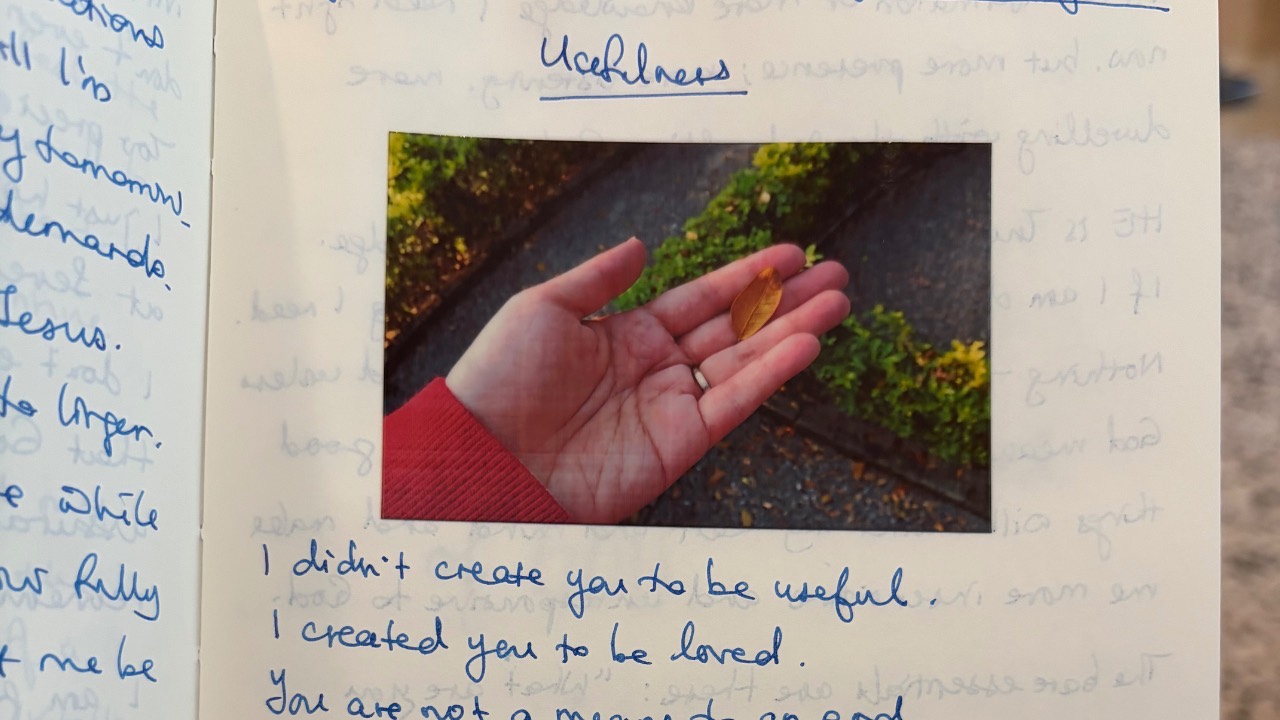"Seeking Christ Elsewhere": A Reflection on Pope Francis' Final Easter Homily
On Easter Monday morning (in Singapore), I wrote a reflection on what has turned out to be Pope Francis' final Easter homily just a few hours before news of his passing was announced by the Vatican.
I had planned to send this out on Divine Mercy Sunday, but decided to send it out now on the day of his heavenly homecoming in tribute and thanksgiving to the pope who made me feel accompanied, fathered and safe enough to deconstruct so many aspects of my Catholic faith in my healing journey while still feeling welcomed as one of his flock. It was Francis' reflection of the same mercy and unconditional love that I was experiencing from God the Father at the most painful parts of my deconstruction journey that helped me keep my heart open to the Catholic Church.
I share with you now my reflection on how his final homily can inspire those who feel far from the institutional Catholic Church to continue to seek Christ earnestly and with confidence that Christ will let himself be found, even if we need to do our seeking "elsewhere"!
In his Easter homily, Pope Francis wrote:
This is the message of Easter: we must look for him elsewhere. Christ is risen, he is alive! He is no longer a prisoner of death, he is no longer wrapped in the shroud, and therefore we cannot confine him to a fairy tale, we cannot make him a hero of the ancient world, or think of him as a statue in a museum! On the contrary, we must look for him and this is why we cannot remain stationary. We must take action, set out to look for him: look for him in life, look for him in the faces of our brothers and sisters, look for him in everyday business, look for him everywhere except in the tomb.
When the Church becomes a Tomb
Here's a plain and difficult truth: for many people, especially survivors of spiritual and religious trauma (often because of abuse), the Catholic Church has become a tomb. Instead of being the source from which God's grace and love flows, the Church has become a place where faith is strangled, God's loving face obscured, and our own sacred dignity trampled upon.
Those of us who have been catechised and formed in the Catholic Church were taught to understand and believe in the goodness of the Church and to trust - practically blindly - in the authority and leadership of our bishops, priests and the lay leaders they delegated their institutional authority to. When what we experience in our bodies is the opposite of what we have been taught to believe, there is great cognitive dissonance, suffering and turmoil.
Our intellect tells us to keep believing what we had been taught to be true - that God is good, that the Church is good; but our heart, our nervous system, and even our very soul can be shouting, "This is harm, not love. This cannot be what God wants - and if it is what God wants, I don't want anything to do with him!" To be forced to remain in the physical space or situation that keep us in this cognitive bind is - in my mind - to insist on seeking the risen Christ in the tomb.
As "dutitiful" and "loyal" as this may seem, it will not revive what has died. And yet, every trauma survivor that I have spoken to has tried to "stay in church" for as long as possible because they do not trust their own body or intuition - and they often leave (physically or emotionally) only when they simply cannot bear it anymore. Even then, many of them are filled with shame and see this as a last resort because of their own weakness.
Some leave the Church in order to "Seek Christ Elsewhere"
I have had conversations with people who are in ministry as well as those in religious or priestly formation who express concern when someone who used to be active in church suddenly leaves a faith community or stops going to mass. I always ask them, "Why exactly are you concerned that they left? And do you know the full story behind why they left?"
I have found that there is frequently an assumption that for someone to leave a faith community or to stop attending mass is always a movement away from God. That's when I like to follow up with another question, "Do you think it is possible that it is Christ who is calling them out into the 'wilderness' away from church spaces so that they can finally encounter Him anew?" In other words, can we believe that it is possible that leaving a faith community or ceasing to participate in the sacramental life of the Church might come from not only a desire for but an actual movement toward God?
I am going to be bold and say that anyone whose answer to that question is "no" is not going to be able to minister to or accompany anyone who has experienced spiritual harm - whether in church spaces or in religious and devout Catholic families. And it is precisely because so many of our pastoral ministers and religious leaders fail to see how the church has become a tomb for survivors that people end up just "quietly quitting" church while never ceasing to have a deep desire that their restless hearts will somehow find rest. Whether they are aware of it or not, those who have left faith communities or religious practices because of spiritual harm are still passionately seeking Christ.
Pope Francis' Easter homily continues:
We must look for him without ceasing. Because if he has risen from the dead, then he is present everywhere, he dwells among us, he hides himself and reveals himself even today in the sisters and brothers we meet along the way, in the most ordinary and unpredictable situations of our lives. He is alive and is with us always, shedding the tears of those who suffer and adding to the beauty of life through the small acts of love carried out by each of us.
Survivors of spiritual trauma often do recognise Christ when they encounter him in the tenderness, mercy, compassion and love of others - even when this is far from church spaces and found in the most ordinary situations "out in the world". This is why there are people who insist that though they do not practice their faith in the same way anymore, they still believe in Christ. Out of their desperation and spiritual poverty, many survivors have "stumbled upon" a profound truth - that Jesus Christ can be obscured in places which are proclaiming him in words (and liturgy) and that he can be revealed in non-religious spaces through deeds even when he is not mentioned in words.
We can be "in church" and far from God
Pope Francis continues:
Easter spurs us to action, to run like Mary Magdalene and the disciples; it invites us to have eyes that can “see beyond,” to perceive Jesus, the one who lives, as the God who reveals himself and makes himself present even today, who speaks to us, goes before us, surprises us. Like Mary Magdalene, every day we can experience losing the Lord, but every day we can also run to look for him again, with the certainty that he will allow himself to be found and will fill us with the light of his resurrection
...this is the greatest hope of our life: we can live this poor, fragile and wounded existence clinging to Christ, because he has conquered death, he conquers our darkness and he will conquer the shadows of the world, to make us live with him in joy, forever.
To those who believe that those moving away from the institutional Church are necessarily becoming lost in the world and therefore lost to God, I will say this - I know from personal experience that it is possible to be deeply immersed in the sacramental life of the Church, deeply formed intellectually in her teachings, be involved with evangelisation and mission and still be strangers with God and Self.
In fact it is due to many such active, convicted believers who are unaware of how distorted their images of God are or how much they project their own wounds onto God and religion that grave harm is perpetuated within the Church even in the name of God and spreading the gospel. I count myself as one of these people and I am still praying for those I have harmed without knowing.
It is entirely just and good for survivors to defend their sacred God-given dignity by drawing boundaries so that they can heal and encounter the true nature of God "elsewhere". In order for healing, transformation and reform to happen - both for individuals and for the Church as a whole - Christ often calls us to seek him elsewhere. We cannot heal while remaining in the tomb. We need to seek Christ earnestly everywhere he chooses to reveal his ressurected self to us.
May we embody and become what we proclaim when we cry "He is Risen!" to one another on Easter. And may we have the courage to seek Christ in all the "elsewhere"s of our lives until we experience ourselves being found by God AND by our own selves.
When I have had more time to process the news of Pope Francis' passing, I hope to share more about some of the specific ways that he has made me feel seen and fathered as a complex and spiritual trauma survivor in recovery. For now I wish you a very Blessed Easter!
Journeying with you,






Responses